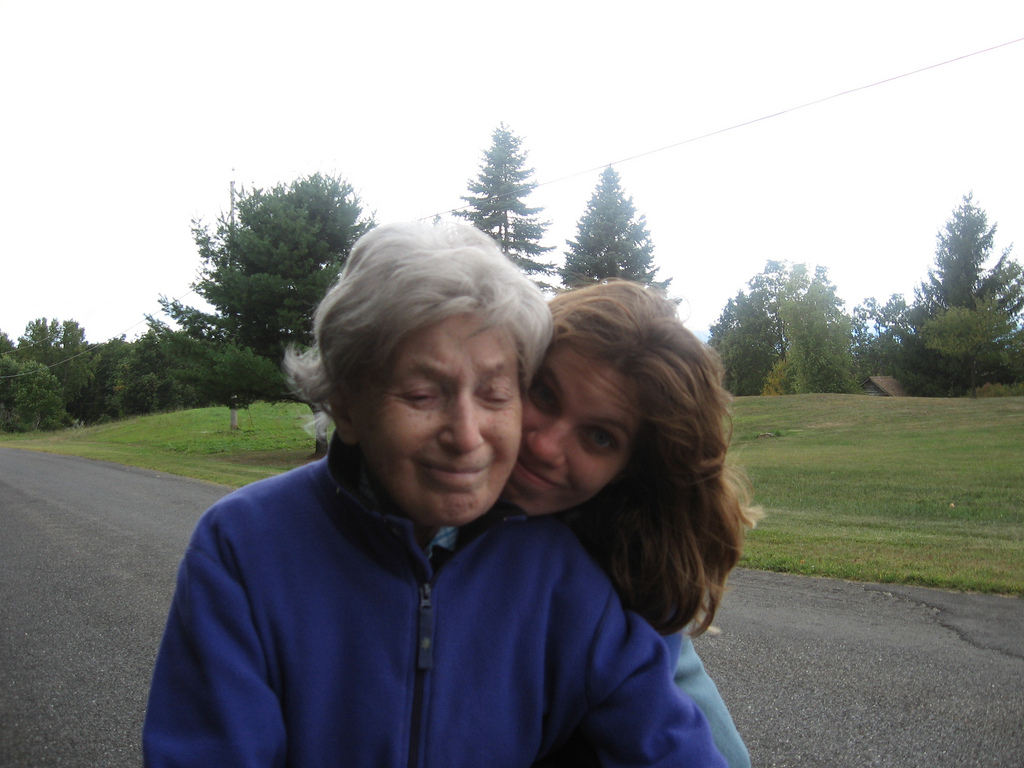When you’re 22, and you watch your friends’ black-clad backs strain as they act as pallbearers at the funeral of one of your gang, whose smile you counted on forever, you think you will never be able to feel sadness over a “normal” death again. You think, “I will be thankful if all the rest of the deaths I lament come in the right order and with time, however short, to prepare: parents before children; the grandparents before parents.”
That is how I felt at 22. I was right, but also wrong. Seven years after my brilliant, charismatic college friend Paul died in a tragic accident, my difficult and utterly beloved grandmother Bunny died at 97. Her passing after a full life was far from sudden; she deteriorated steadily over a year, then rapidly over a final month or two. During that period, we walked over to her apartment regularly to offer words of gratitude and love. We sat with her and looked over pictures and held her hand as she shrunk away from us. And yet I did mourn again as I thought I wouldn’t. I mourned with ferocity, with fullness, even with some anger. I lay in bed weeping at night; I snuck away from my grandmother’s side to cry in her bathroom. I dismissed the reasonable things people told me about time and memory healing my wounds because I was too broken up to listen.
So now I’ve known two kinds of death in an intimate way: the kind that begins with sirens, shock and utter disbelief, and the kind that sighs its way to completion. Though there are vast differences between losses, though they take different paths through forests of emotion, there is always absence at the end. Maybe that’s why I was angry at my grandmother’s death, a “good death” or “normal death” by all conventional markers. Not because her death was unfair, as Paul’s assuredly was, but because death itself — its inevitability, its finality — is unfair.
The year Paul died, I lived in my grandmother’s guest room for a year while I taught high school in the Bronx. I say lived, but I really just subsisted on a diet of fear and anger: I picture myself now walking around in a blue flame of fury. I felt particularly spiteful towards former college classmates. These people had the temerity to stride out into the day, getting reservations at trendy restaurants, landing job interviews, and negotiating their future — even as Paul was robbed of the opportunities that lay before him, and the world was robbed of the fruits of what should have been his long life.
My classmates’ easy-seeming paths through life represented what I had possessed recently, and what I had been so careless with: the blithe privilege of believing life would go on unmarred, unthreatened.
I was also, of course, paralyzed by fear that someone else would depart in the middle of the night. When I didn’t hear from a family member for several hours, I’d stop talking and grow tense, and silent, clutching my phone, willing them to call. My mental retreat lasted for hours while my friends laughed in front of me, invisible tape over my mouth, ears, eyes. I was waging my own silent protest until I could account for everyone I loved.
My grandmother, hosting me in her home, bore witness to all this. She didn’t have the vocabulary to comfort me, but she bought me croissants and rugelach and filled the coffee machine with water and coffee grounds before she went to bed, so I’d have one less thing to do at 6 am. She sustained me, and I her. And yet her hovering agitated me. And my chaotic, unstable presence upended her regimented existence.
After her death, we found her diaries: She was sure we wished she had died and Paul had survived. Even as I type this, I’m ambushed by the wish to say: No, grandma. That wasn’t it at all. Her death didn’t leave me afraid, or furious, but I do I wish I said to her that those croissants and rugelach were the only thing I could get down my throat for most of the year. Actually, I did tell her that, but it sometimes feels like I didn’t, because she’s gone and I can’t tell her again. I wish I had assured her that I didn’t want a life for a life — or at least, not her life for a life. I wish, more simply, that she and I had been able to spend more nights together on her couch that year, watching Jane Austen movies. But she was set in her ways by age, and I was set in mine by grief. I had “closure” with my grandmother, but I rue our lost opportunities.
Losing someone is the purest pain there is. The year I lived in my grandma’s back room was marked by my fits. And after my fury was spewed and my paranoia was calmed, there was always, at the conclusion of whatever it was, a cascade of tears for Paul. I would let my then boyfriend, now husband, put his arms around me, and I would repeat the refrain: “It’s just so sad. It’s just so sad.” It was just so sad. It still is.
Every loss is painful because every life we love has value, in its living and in its memory. We can only ask, we can hope to feel the aching loss of a life that was fully spent, rather than loss of a life that has hardly begun. That only seems fair. But either way, beneath the anger and the gnawing questions that the worst, the most cruel, losses leave us with, we find ourselves in the same place: We hold up their lives as our light and we stare down the darkness.
Sarah Seltzer is a writer of fiction and nonfiction. Find her at www.sarahmseltzer.com.









